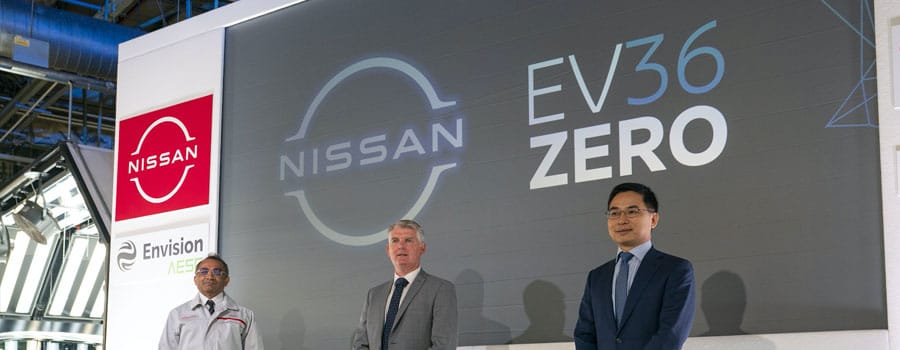The rise of the Gigafactory - but what exactly is it?

Good question. Tesla started it and now everyone wants to get in on the act. No, not electric cars. We're talking about Gigafactories.
But just was is a Gigafactory? Well, hold on, we're going to try and explain...
The term Gigafactory comes from the word 'Giga', the unit of measurement representing “billions”. The term started with Tesla boss Elon Musk, because when Tesla announced plans for their first one back in 2013 the word simply didn't exist. But it's typical of Musk's language to name a battery factory something that feels space age and out of the ordinary. (Think Cybertruck for the firm's proposed light pick-up truck.)
The logic behind these giant production facilities is simple.
When a Gigafactory ramps up production, the cost of battery cells and electric motors will significantly decline through economies of scale. This in turn drives the price of EVs down which further drives demand for the batteries, which in turn drives the production costs down further. All from simply locating the manufacturing processes under one roof.
With the Government's decision to ban the sale of new petrol and diesel models by 2030, and the manufacturer drive to switch to electric-only production even earlier than that, the demand for batteries and motors is only going to increase. And as it stands the UK is lagging behind quite significantly in this area.
The problem is simple.
It's estimated that the UK motor industry will need 175GWh of battery production by 2035 to keep up with demand. We currently have less than 2GWh worth. To put that into context, the current UK supply comes from the Nissan/Envision plant opened in 2012, which has produced enough batteries to power 180,000 vehicles in nine years. That's just 20,000 per year. At full capacity, the Tesla Gigafactory is designed to produce batteries for 500,000 vehicles per year.
We've got a lot of catching up to do...

And Nissan has been first out of the blocks. Alongside the
announcement of a £420million investment in a brand new EV
to be produced at Nissan's Sunderland plant, came a further £450million from Nissan's battery partner, Envision AESC, to build a new Gigafactory to supply the battery packs.
The formal planning process is about to begin for the new Gigafactory, which represents an initial 9GWh plant, with potential future investment of £1.8bn to take that up to 25GWh and creating 4,500 new high-value green jobs in the region by 2030. At full potential the site could produce up to 35GWh. The new plant will lower the cost of EV batteries produced in the UK, as well as developing a new Gen5 battery cell with 30% more energy density which improves range and efficiency. These will power Nissan's new vehicles, built in the factory next door.
This builds on Nissan's experience in developing what was one of the world's first integrated battery cell manufacturing plants in Sunderland.
The current 1.9 GWh facility was originally developed by Nissan's battery division AESC before being sold to Envision Group in 2018, forming Envision AESC. It initially produced battery packs for the Nissan LEAF, which were much smaller than those used in today's electric vehicles. Since then, electric vehicles battery requirements have grown with larger packs requiring a greater quantity of cells, hence the need for a bigger factory.
The first phase of the development, the 9 GWh plant could supply around 160,000-170,000 electric vehicles per year. Nissan estimates it will need around 100,000 battery packs just to produce the required number of the planned new EV. That still leaves us a long way short of the 175GWh we're going to need, but it's a start.
As you can imagine, there are more manufacturers and battery suppliers in talks about setting up further Gigatories in the UK, because we will need them.
A second Gigafactory is under preparation in the North East with BritishVolt planning to start production in 2023 and there's discussion about a Gigafactory plant near Coventry Airport.
So there you have it: a Gigafactory is basically a factory where they make batteries, but on a massive scale. So next time you hear the term you'll know what it means - and what's more we can expect to hear it more often as electric vehicle production in this country expands with more
electric vehicles available to lease
.
View our latest blog posts

Categories
Pages
We are a family run business based in rural Worcestershire. Our team of 38 staff are on hand to provide an exceptional service to personal and business customers.
Read More
